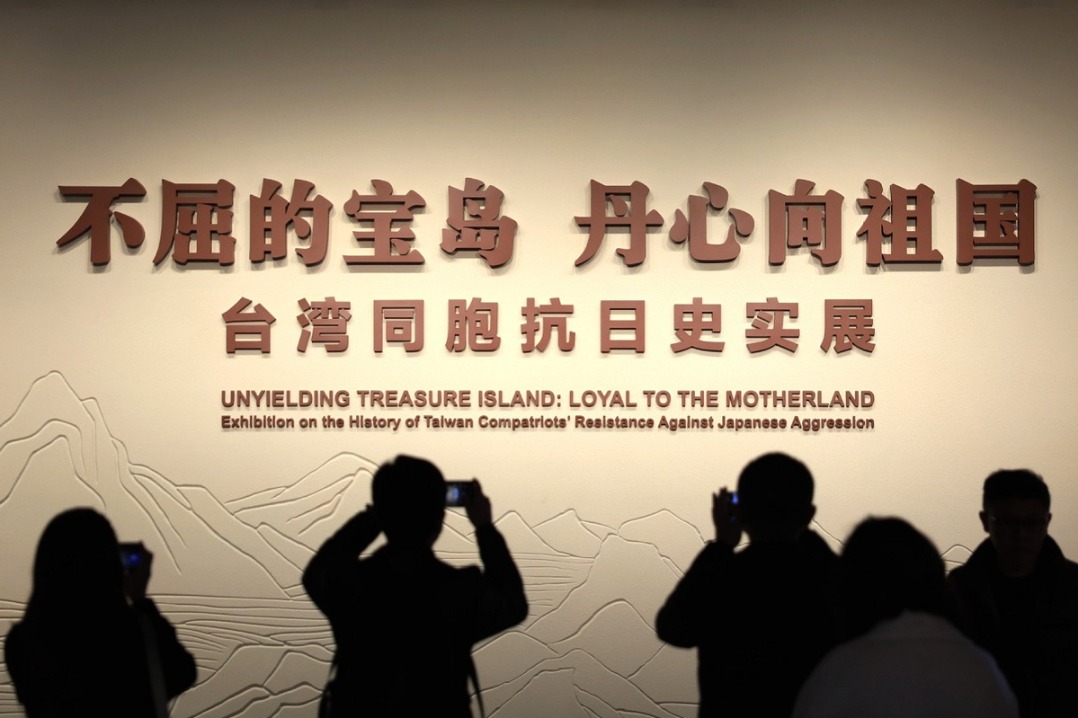Shanghai initiative to provide early weather warnings globally

A Shanghai-initiated, AI-powered meteorological system designed to provide early warnings for all has inspired a new joint action plan to turn China's expertise in disaster prevention into a global public service.
The plan was unveiled on Monday at the 2025 SDG Cities Global Conference in Shanghai.
According to the plan, launched by the Shanghai Meteorological Service, the city will work with meteorological departments across China to share data, models and experiences. The initiative aims to expand cross-regional and international cooperation and ultimately build an intelligent early warning network capable of delivering tailored solutions for countries and cities worldwide.
The plan outlines several areas of collaboration. For example, Shanghai will partner with the Guangxi Zhuang autonomous region to create a typhoon early warning system for members of the Association of Southeast Asian Nations to strengthen disaster prevention along the Maritime Silk Road. The city will also work with the Ningxia Hui autonomous region to develop a smart warning model for desert cities to support China-Arab disaster reduction efforts and collaborate with the Inner Mongolia autonomous region to establish a fire risk forecast and warning model for grasslands, helping safeguard ecosystems and public safety.
Other actions being taken include working with Yunnan province to build an early warning system for the Lancang-Mekong region, benefiting countries in South and Southeast Asia; joining forces with the Xinjiang Uygur autonomous region to develop an early warning system for Central Asia, supporting regional governance under the Shanghai Cooperation Organization; and establishing storm surge forecasts with the Macao Special Administrative Region that can be promoted among Portuguese-speaking countries.
All the collaborations are based on MAZU-Urban, an AI-powered multi-hazard early warning system for urban settings developed by the Shanghai Meteorological Service and other domestic partners. Named after the ancient Chinese sea goddess Mazu, the system's acronym stands for multi-hazard, alert, zero-gap and universal — reflecting its focus on protection and preparedness.
Core technologies of the system include flexible multi-hazard monitoring tools and forecasting applications. It can automatically produce disaster bulletins during the warning stages of inclement weather and use AI-driven large language models to generate role-based, disaster-specific defense guidelines and emergency plans, while supporting real-time Q&A with users to enhance response efficiency.
The system features a three-tiered structure serving meteorological and emergency management departments, industry-specific users and the general public. It provides real-time disaster monitoring, personalized risk assessments and localized emergency response guidance.
MAZU-Urban had its global debut at the 2025 World Artificial Intelligence Conference in Shanghai in July, when the city donated the system to meteorological authorities in Djibouti and Mongolia as part of its initial technology-sharing efforts.
Zhao Yang, director of the information center at the Shanghai Meteorological Service, said the initiative behind MAZU-Urban is not just about exporting technology, but also fostering collaborative sharing.
"We look forward to deepening cooperation with more countries and international organizations, turning Shanghai's meteorological warning practices into a shared global asset," Zhao said. "Our ultimate goal is to equip every country and city, especially those in vulnerable regions, with the capability to keep pace with extreme weather changes."
Zhao said the system is already operational in 35 cities across Asia, Africa and Oceania. He noted its effectiveness in Macao during Typhoon Wipha in July, when it significantly improved the efficiency of every stage of disaster response.
"The smart system reduced time from hours to minutes in every step — from preparation and observation to forecasting, warning dissemination and response — greatly enhancing timeliness and earning high praise from local experts," he said.
Yu Jun, an official with the Asia and Southwest Pacific Office of the World Meteorological Organization, said the UN agency will help promote such Chinese experiences among its members and customize solutions to fit local conditions.
"All such efforts aim to broadly cover urban citizens around the world and turn today's passive reactions into more proactive actions in the future," Yu said.
zhouwenting@chinadaily.com.cn
- Shanghai initiative to provide early weather warnings globally
- World's first gene-edited black goat fit for hot days
- Report urges more oversight for food industry
- Former legislator sentenced to life
- New solar thermal fabric could be a game changer
- A story of symbiosis that stills spread of dust bowl





































